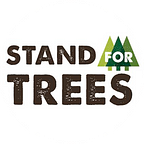CONGO BASIN RAINFOREST PROJECT — Democratic Republic of the Congo
Stand For Trees Project Impacts
The Congo Basin Rainforest Project protects over 740,000 acres of critical bonobo and forest elephant habitat within the world’s second-largest intact rainforest, the Congo. The Congo Basin Rainforest Project provides a pathway to low-carbon economic development, agricultural and economic diversification, education and healthcare development, and capacity building activities that empower local communities.
When you offset your CO 2 emissions by supporting the Congo Basin Rainforest Project, you simultaneously protect one of the world’s most important tropical habitats located in one of the world’s most impoverished countries. Without support for the project, the area would likely be leased to foreign logging and mining companies, resulting in destruction of this critical habitat. Your Stand For Trees purchase brings value to this forest for the vital services it provides, and it creates sustainable development opportunities for the people protecting it.
Key Facts
• Protects 740,000 acres of high conservation priority tropical and swamp forest, reducing emissions by 100 million tonnes of CO 2 over 30 years.
• Protects critical habitat for endangered forest elephants and bonobos, our closest primate relative found only in the Congo Basin Forest.
• Creates new economic and educational activities in the region, as well as safeguarding the forest communities’ traditional, spiritual, and cultural values.
PROJECT IMPACTS
Endangered Species
The project is part of the globally significant Lac Tele-Lac Tumba landscape, one of the most important wetlands in the world and the largest freshwater area on the African continent. The project area is home to the bonobo, the endangered great ape that is humankind’s closest relative and found only in the Congo Basin. It is also home to the endangered forest elephant, giant pangolin, brown-cheeked hornbill, and Osborn’s dwarf crocodile.
Community Development
The project area is home to 50,000 people who, prior to project implementation, lacked consistent access to clean water, healthcare, education, and food security. The project is now supporting improved access to drinking water, agricultural and economic investment, education, healthcare, and capacity building services. The Mai Ndombe Forest Conservation Project directly employs over 170 local people for project monitoring and management, and provides widespread capacity building workshops.
Education
The Mai Ndombe Forest Conservation Project will build at least 19 schoolrooms in local communities, some of which have never before had access to schools, substantially increasing the quantity and quality of local educational infrastructure. Each semester, the project distributes school supplies to every student in the project zone.
Healthcare
Prior to the project implementation, none of the local communities had access to proper health centers. The Mai Ndombe Forest Conservation Project has established a mobile medical clinic to improve access to health care for isolated rural villages. The project works closely with the national and regional health authorities and active health NGOs to invest in health needs assessments, carry out medical tours, and create modest but proper health centers in local communities. The project is also improving the availability and distribution of medicine.
Emission Reductions & Certifications
The Mai Ndombe Forest Conservation Project will reduce emissions by over 100 million tonnes of CO 2 over the next 30 years by providing low-carbon, conservation-oriented development opportunities. Verified to both the Verified Carbon Standard (VCS) and the Climate, Community & Biodiversity (CCB) Standards, Second Edition, the project is delivering tangible benefits at both the local and global scales. It has achieved verification to the CCB Standards Second Edition with Climate Adaptation and Biodiversity Gold Levels.
